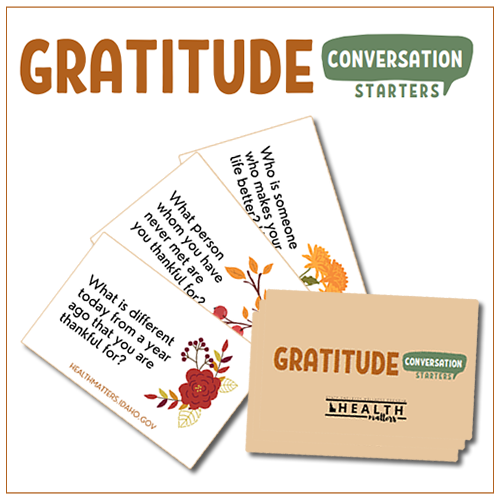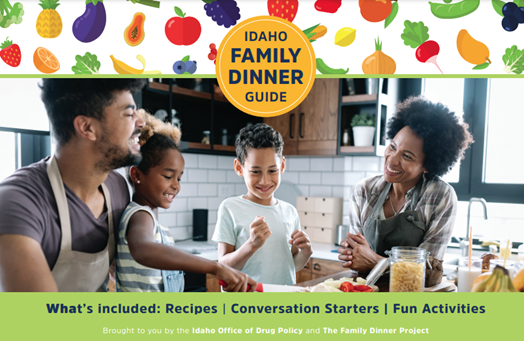Crisis Coping Resources

ComPsych’s Guidance Resources®, the State of Idaho’s Employee Assistance Program provider, has shared the following resources to help cope with the anxiety and stress associated with global crisis and conflict.
Through the Employee Assistance Program, benefit eligible employees and their dependents may receive 1 to 5 visits per person, per issue, per plan year to confidential counseling services with no copayment required. Visit the Office of Group Insurance website to learn more.
Coping with Conflict Guide
- Dealing with the effects of social upheaval
- Coping with a traumatic event
- When anxiety becomes a problem
- Workplace resiliency in response to political discord
- Answering questions children have about tragedy
- Helping children cope with trauma
- Talking to a child during uncertain times
- Coping with grief
- Infographic: coping with stress and anxiety
- Infographic: when anxiety becomes a problem
Crisis Portal
- Coping with a traumatic event
- Coping emotionally after a disaster
- Talking to a child about a traumatic event
- What should I do when I am told to evacuate?
- Coping with grief
- Coping with a crisis or traumatic event
Coping During Uncertain Times Webinar Recording
People have a powerful need to understand and predict their environments in order to feel in control. When we are exposed to potential threats to our well-being, we naturally respond to this uncertainty with anxiety and fear. This training will address ways of effectively coping with uncertainty and will examine how to remain positive and functional, despite the risks of living in a changing world. Included will be practical tips for coping with uncertainty, re-establishing control, and tips for speaking to children about fear.
Senior Nutrition Program
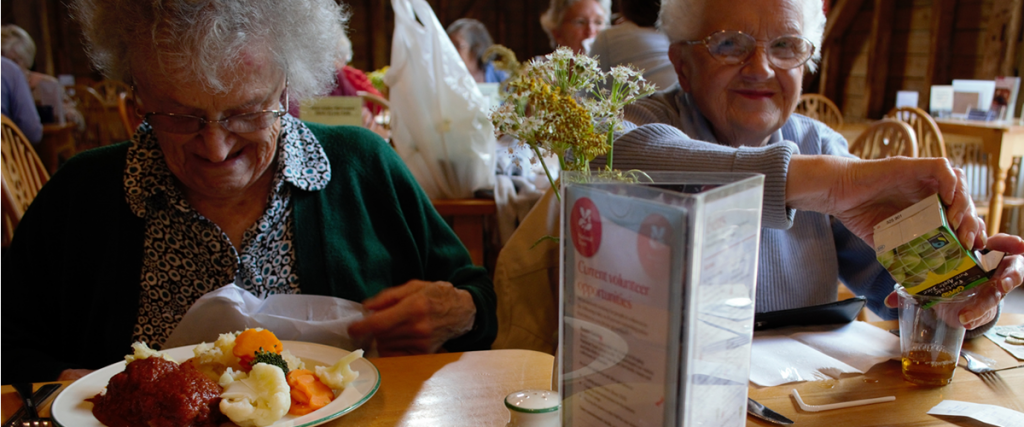
Let’s celebrate the 50th anniversary of the Senior Nutrition Program!
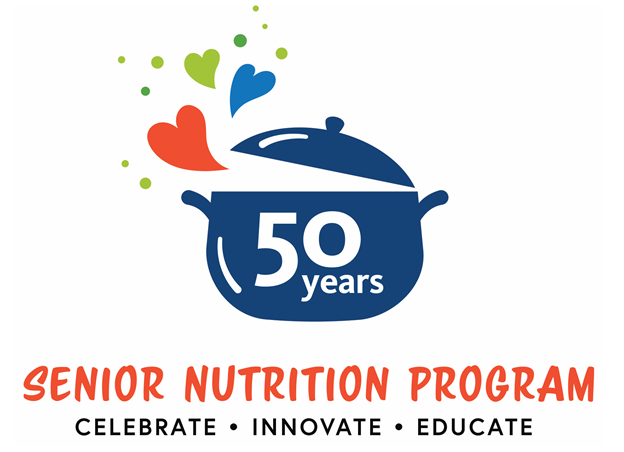
According to Feeding America, one in six seniors are considered food insecure. This means about 57,000 seniors in Idaho may be dealing with the issue of food insecurity, which can create negative impact on their health.
In addition to causing a few extra wrinkles and unexpected aches and pains, getting older also impacts metabolism and the body’s ability to absorb nutrients. Because the way the body processes food changes as we age, nutrition becomes vitally important. For older adults, eating the right foods can not only improve health, but also protect against preventable diseases and even enhance quality of life. As with most health-related issues, the first step towards developing better nutrition is awareness.
‘Hippocrates, a famous Greek physician, stated in 440 BC “Let food be thy medicine and let thy medicine be food”. We have finally come to fruition with that fact, 2,383 years after his death.
Each March, the Administration for Community Living (ACL) leads the celebration of the Senior Nutrition Program and the Idaho Commission on Aging promotes its anniversary by celebrating the program’s rich history and tremendous value across the nation with Area Agencies on Aging and meal providers.
The purpose of the nutrition program is to:
- (1) to reduce hunger, food insecurity, and malnutrition;
- (2) to promote socialization of older individuals; and
- (3) to promote the health and well-being by assisting such individuals to gain access to nutrition and other disease prevention and health promotion services to delay the onset of adverse health conditions resulting from poor nutritional health or sedentary behavior.
ACL funds senior nutrition services, including home-delivered and congregate meals. For more resources follow ACL on Facebook and Twitter and join the conversation via #SNP50.
Please join the Idaho Commission on Aging in spreading awareness about malnutrition and food insecurity and help to reduce hunger. Encourage the elders to consider attending a meal at least weekly for healthy benefits for mind and body!
For more information on Congregate Meal Sites and Home-Delivered Meals, please contact your local Area Agency on Aging.
Please join our free educational webinars on March 8th and on March 23rd. For additional nutrition information please visit the ICOA website and follow us on Twitter and Facebook.
See how the healthcare system benefits if seniors eat a nutritious meal at a congregate meal site.
4 Mood and Energy Boosters
Your energy levels can be depleted by many factors. The external world is full of distractions, noise, sadness, and stress. It is valuable to remember that you, and only you, are responsible for your mood. Here are some helpful tips to keep your mood and energy levels in check so you can build them back up when they are depleted.

Music
A quick way to inject feelings of happiness and positivity is to include music. Music can provide an instant energy boost and has been used therapeutically in clinical settings for both pain management and emotional well-being. When you are feeling down or just need a dose of happiness, put on your favorite upbeat tunes, and groove your way to a better mood.
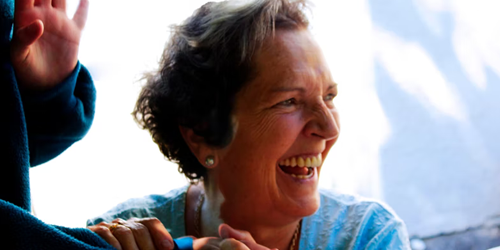
Laughter
It is true, laughter really can be the best medicine! Laughter has been shown to elevate mood, enhance immunity, and even prolong life. These benefits come from hearing laughter, having expectations of laughter or fun, and by the act of laughing itself.
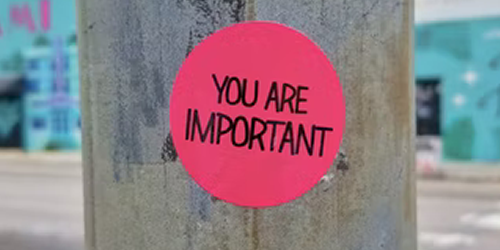
Affirmations
Affirmations are phrases that you repeat to change, increase, or improve your state of mind. The power of affirmations is not in the words themselves, but the practice of visualizing a different reality. When you combine intentional actions with the refreshed mindset from your affirmations, you will find you can accomplish great things.

Good Deeds
When you do something nice for someone, it turns your focus away from yourself and your concerns and allows you to focus on helping somebody else feel good. Spreading kindness is the best way to spread happiness. Something as simple as a compliment, a kind word, or an act of generosity can start a positive domino effect of positive feelings.
Source: WELCOA’s COVID-19 Employee Education Toolkit: “Acknowledging and Lifting Your Mood and Energy Level“
Well-Being Refresh

Refresh in January
A new year can bring new energy to refresh your well-being! The truth is we don’t need a new year to make positive changes, but sometimes the fresh start can be what it takes to get us started. If you’re thinking about making some changes this year, be sure to think small. It is common to get carried away with a grand new year’s resolution, but habit-building science confirms that small, consistent changes lead to better outcomes.
Here are six small and simple ways you can refresh your well-being in the new year!

Reflect: Take some time to look back on the past year. What went well? What was challenging? What kinds of things do you want to do again? What types of things do you want to avoid, if possible? Looking back on where you’ve been can help you determine where you want to go. Use your reflection of 2021 to help you establish and define your intention for 2022.
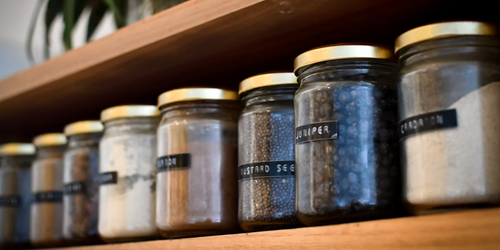
Clean Your Physical Environment: Start the new year with a clean and organized space, whether that’s at work, at home, or both! Think about your goals and intentions for the upcoming year and determine which areas could use a little tidying. Maybe you want to clean out your kitchen pantry or purge your clothes closet, or finally tackle that old filing cabinet. You don’t have to do it all at once, but start somewhere and do one space at a time…even if that means you won’t be done until next January.

Clean Your Digital Environment: Don’t let technological noise take up precious space in your brain and life. Use the new year as an opportunity to unfollow and unsubscribe from digital content that is no longer serving you. If you’re feeling bold, you may delete some apps altogether!

Update Your Routine: Routines can help you manage change, stick with healthier habits, and reduce overall stress. If you’ve noticed yourself out of your regular morning or evening routine (or you’ve never had a routine), now is the time to get on track. Think of a few things that make you feel your best, and try incorporating them into a simple routine. Perhaps that means getting up 20 minutes early to read or journal before the rest of your family wakes. Or maybe you’ll start putting on your walking shoes as soon as you get home so you can take the dog for an evening walk. It could even be setting aside time on Sunday afternoons to grocery shop and meal prep for the week ahead. Keep track of how many days or weeks in a row you can maintain your routine to add extra motivation.
Goal Setting
Resolutions are easy to make but hard to follow through with. This is because most resolutions (I want to get healthy. I want to lose weight. I want to be more organized. I want to save more money.) are too vague and do not incorporate concrete actions. On the other hand, effectively developed goals are specific, finite, and help you stay focused on your desired outcome.
- You can set a goal for almost anything! Whether you are training for a race, trying to eat more vegetables, or saving for a big purchase, making your goals SMART sets you up for success!
- Be purposeful in your goal setting. Choose a small number of objectives that are the most important to you. A goal should include a metric that lets you know you have accomplished it.
- It is easier to stick to a new behavior with a supportive network. Accountability can be motivating and is critical for success. Tell friends, family, and co-workers about your goals and ask them for support.
Radon: Fact or Fiction?

Did you know radon is present in many Idaho homes? The Idaho Environmental Health Program within the Division of Public Health manages the Idaho Radon Program. Below is information to separate radon facts from fiction and help keep your family healthy.
FACT: All homes should be tested for radon.
Radon is a naturally-occurring radioactive gas that you cannot see, smell, or taste. It enters homes through gaps or cracks in the foundation. All homes, including new builds, existing homes, and those with and without basements, can have high levels of radon gas. With more people working from home due to the COVID-19 pandemic, the risk of radon exposure may be increased as more time is spent within the home.
Testing is easy and is the only way to know if you are being exposed to radon in your home. The Environmental Protection Agency (EPA) recommends testing your home every two years or after any remodeling.
You can order a FREE short-term test kit from www.radonidaho.org or call the Idaho Careline at 2-1-1 or 1-800-247-2435.
FICTION: Radon is not an issue where I live.
Two out of every five homes tested in Idaho have higher than the recommended levels for radon. In fact, high radon levels have been found in every county in the state. To learn more about radon test results and recommended actions, visit www.radonidaho.org. You can also view Idaho radon test results by zip code on an interactive map and order a FREE short-term test kit.
FICTION: Radon is not harmful to my health.
Long-term exposure to radon gas is known to cause lung cancer and is the leading cause of lung cancer in non-smokers. To learn more about the health effects of radon, visit the Environmental Protection Agency’s (EPA) Health Risk of Radon website at epa.gov/radon/health-risk-radon.
FACT: Winter is the best time to test a home for radon.
Radon levels can change by season and with the weather. The highest levels of radon are found during the winter months when homes get less fresh air. To learn more about radon testing and how to respond to a radon problem, visit www.radonidaho.org.
FACT: A radon problem can be solved!
Radon mitigation systems can effectively reduce the levels of radon in a home. The Idaho Radon Program recommends hiring a nationally-certified radon professional to fix your home. To locate a radon professional, visit www.radonidaho.org.
The Idaho Radon Program is offering a free two-hour interactive radon workshop that will explain what radon is, how it enters your home, and what you can do to help prevent excessive exposure and reduce your risk of lung cancer. To register, please visit www.radonidaho.org.
- January 18, 2022 at 1pm-3pm MT Virtual Online
- January 20, 2022 at 9am-11am MT City of Hailey, Council Chambers (*in-person masks required)
- January 25, 2022 at 9am-11am MT Virtual Online
- February 3, 2022 at 9am-11am MT Idaho Falls Building Department (*in-person masks required)
- February 17, 2022 at 1pm-3pm MT Virtual Online
If you have questions or need more information, contact the Idaho Radon Program at 1-800-445-8647 or radon@dhw.idaho.gov.
Help is Close When You Need It
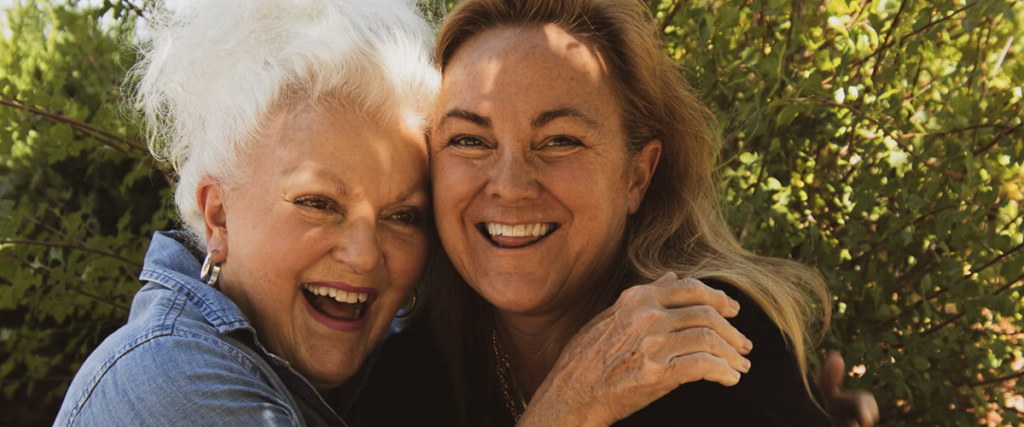
Caring for someone with Alzheimer’s and other dementias can be a rewarding experience, it can also be demanding and challenging. Caregivers for people with Alzheimer’s and other dementias are two and half times more likely than caregivers with other conditions to need help with emotional or mental challenges and nearly four time as likely to assist with behavioral issues (Alz Association, 2018).
About one in three Alzheimer’s caregivers report their health has gotten worse due to care responsibilities, compared with one out of five caregivers or older adults (National Alliance for Caregiving, 2017).
Luckily help is available within the local area where the caregiver or the person with Dementia are living.
Caregivers usually do not know what they are seeking when calling an agency, so The Idaho Commission on Aging in partnership with six Area Agencies on Aging staff can aid caregivers to explore a spectrum of issues so the caregiving family can make informed decisions in their situation. There are 6 AAAs located throughout the state and each are experts on resources available in their communities.
Area Agencies on Aging (AAAs) are trusted sources of information and assistance, where older adults can turn to find specialized information, supports and service options in their area. AAAs also play a crucial information and referral role, connecting families with local providers who can help them create a caregiving plan, address specific challenges, or identify support services.
In addition to Information and Assistance, each local AAA also offers support groups, Powerful Tools for Caregiver workshops, and respite.
The Commission on Aging’s website has free education and training resources found on the Idaho Commission for Aging’s website. Further, the Idaho Chapter of Alzheimer’s offers “Know the 10 Signs” and “Understanding Alzheimer’s and Dementia” and many other webinars. Look out the January schedule of educational webinars here.
References:
Alzheimer’s Association. (2018) Alzheimer’s disease facts and figures. Alzheimer’s Dementia 2018;14(3). Available at alz.org
National Alliance for Caregiving in Partnership with Alzheimer’s Association. Dementia caregiving in the U.S Bethesda, MD: National Alliance for Caregiving: 2017.
The 12 Ways to Wellness
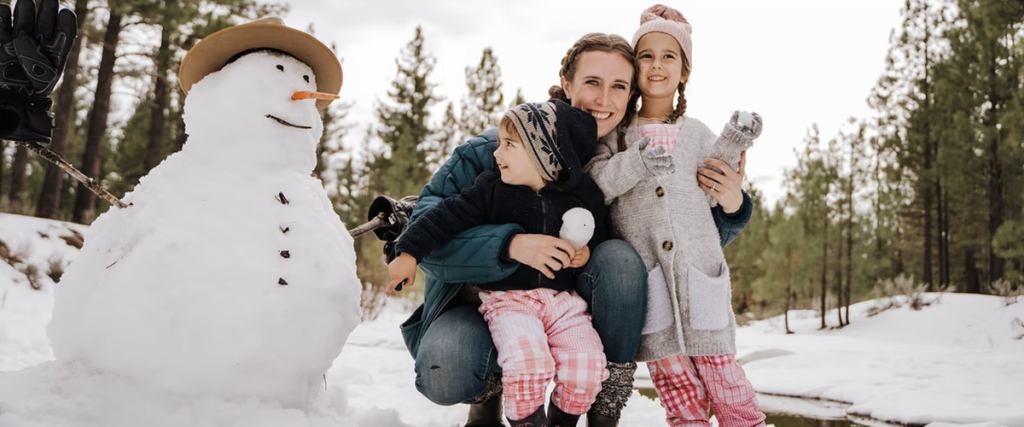
The 12 Ways to Wellness
Sung to the tune of The 12 Days of Christmas
The first way to wellness said Health Matters to me,
Wash hands to be safe and healthy!
The second way to wellness said Health Matters to me,
Manage your stress, and wash hands to be safe and healthy!
The third way to wellness said Health Matters to me,
Drink water, manage your stress, and wash hands to be safe and healthy!
The fourth way to wellness said Health Matters to me,
Move your body daily, drink water, manage your stress, and wash hands to be safe and healthy!
The fifth way to wellness said Health Matters to me,
Prioritize your sleeeeeeeeeep, move your body daily, drink water, manage your stress, and wash hands to be safe and healthy!
The sixth way to wellness said Health Matters to me,
Eat fruits and veggies, prioritize your sleeeeeeeeeep, move your body daily, drink water, manage your stress, and wash hands to be safe and healthy!
The seventh way to wellness said Health Matters to me,
Understand your value, eat fruits and veggies, prioritize your sleeeeeeeeeep, move your body daily, drink water, manage your stress, and wash hands to be safe and healthy!
The eighth way to wellness said Health Matters to me,
Make time for self-care, understand your value, eat fruits and veggies, prioritize your sleeeeeeeeeep, move your body daily, drink water, manage your stress, and wash hands to be safe and healthy!
The ninth way to wellness said Health Matters to me,
Get vaccinated, make time for self-care, understand your value, eat fruits and veggies, prioritize your sleeeeeeeeeep, move your body daily, drink water, manage your stress, and wash hands to be safe and healthy!
The tenth way to wellness said Health Matters to me,
Plan a vacation, get vaccinated, make time for self-care, understand your value, eat fruits and veggies, prioritize your sleeeeeeeeeep, move your body daily, drink water, manage your stress, and wash hands to be safe and healthy!
The eleventh way to wellness said Health Matters to me,
Use good ergonomics, plan a vacation, get vaccinated, make time for self-care, understand your value, eat fruits and veggies, prioritize your sleeeeeeeeeep, move your body daily, drink water, manage your stress, and wash hands to be safe and healthy!
The twelfth way to wellness said Health Matters to me,
Build a social network, use good ergonomics, plan a vacation, get vaccinated, make time for self-care, understand your value, eat fruits and veggies, prioritize your sleeeeeeeeeep, move your body daily, drink water, manage your stress, and wash hands to be safe and healthy!
You Can Provide Comfort and Joy This Holiday Season

My favorite definition of loneliness comes from Britannica: A distressing experience that occurs when a person’s social relationships are perceived by that person to be less in quantity, and especially in quality, than desired.
It is common when people think of loneliness to think of the emotional response to a situation. We’ve all felt lonely at some point in our lives, often in a room full of people. Sometimes we don’t even recognize it as loneliness, we just realize we are not connected to anyone around us.
But, did you know that loneliness is much more than an emotional state? It is a health epidemic costing Medicare 6.7 billion dollars a year? (AARP)
Loneliness is equivalent to smoking 15 cigarettes a day, being obese and having a sedentary lifestyle. (Julianne Holt-Lundstad)
Nearly 40 percent of seniors feel some level of loneliness on a regular basis. (UCSF) and there is no doubt the holidays can be a difficult time for this generation stressed by the pressure of holiday expectations and the sadness of holiday memories.
What can we do to help those we care about?

Listen
That may seem simple, but when you have heard a story many times, make sure to listen again. Especially about holiday memories. If your loved one is hard of hearing or is developing dementia prepare ahead of time on how to best communicate.
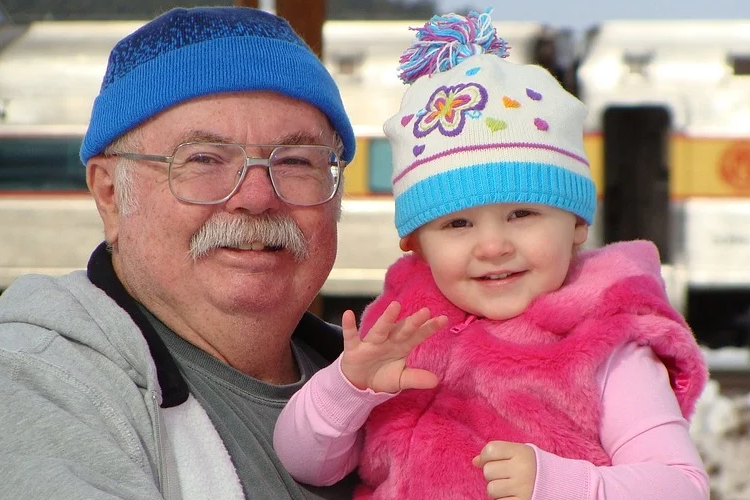
Focus on the true meaning of the season
If they are no longer able to prepare the traditional holiday spread, or able to shop for gifts, make modifications.
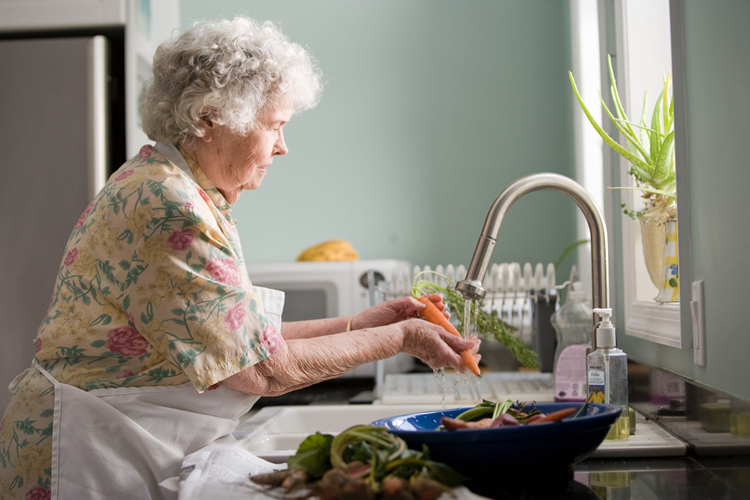
Simplify the meal
One month after my mother had major surgery my family went from a full holiday meal on Christmas afternoon to a simple morning brunch. Each adult child arrived at my parent’s home with the food prepared and set it on the table immediately. This made for a quick and easy meal that emphasized family time and created little work for any one person. It has worked so well we’ve continued and made it our new tradition. My parents still feel involved because it is in their home, but they do not have the pressure of preparing the meal. You can also leave them the leftovers!

Simplify the gift giving
Ask older people in your life to give you the gift of their memories. In writing if they are able, or verbally, and you can record them. Another idea is to let them know that spending time together is the greatest gift. This year I am giving my mother a few 300 large format piece puzzles (available on Amazon for less than $10.00) with a certificate for puzzle day. When she turns in a certificate my daughter and I will show up with a few snacks and visit while we complete the puzzle.
Holidays are unfortunately a trigger for loneliness; however, our goal is to ensure the older people in our lives feel noticed and included not only during the holiday season, but each and every day.
Join the campaign and visit the ICOA website “Stay Educated” page to increase your knowledge about loneliness by taking our six module course, browse the tools and resources, and reach out to your local Area Agency on Aging to get involved.
Happy, Healthy Holidays

Make the holidays merry and bright by prioritizing your well-being! Use the following tips, ideas, and strategies to keep you and your loved ones healthy this holiday season.

Keep it Simple
One of the fastest ways to holiday burnout is to set high, unrealistic expectations for yourself. Make your plans simple and your activities doable.

Create a Holiday ‘Bucket List’
Create a ‘bucket list’ of fun, realistic things to do this holiday season. Ideas might include watching a favorite holiday movie, decorating cookies, donating to charity, looking at Christmas lights, etc.

Pace Yourself
The holiday season lasts for several weeks. Break your holiday preparations into small steps so you can accomplish a little each week. Also, do not forget the first tip and ‘keep it simple’ to prevent holiday burnout.

Reflect on Past Holidays
Think back to moments you have treasured during past holiday seasons, and try to recapture the essence of what made those times special even though it might not be exactly the same.

Look Forward with Optimism
Setting goals challenges us to aim for higher fulfillment and self-improvement. Give yourself something to look forward to next year. Set small, realistic resolutions, and ask others to help you stay accountable.

Talk to Someone Who Cares
If you feel bogged down by a case of the holiday blues, do not suffer through the season. Reach out and talk to someone you trust.
*Source: Tips for Coping with Holiday Stress This Year by ComPsych Guidance Resources
GuidanceResources® is ComPsych’s online access to timely, expert information on thousands of topics, including relationships, work, school, children, wellness, legal, financial and free time. Visit GuidanceResources.com, click the Register tab, and enter your Organization Web ID: SOIEAP.
An Attitude of Gratitude

When life gets challenging, it can be difficult to focus on all the good things we have to be thankful for. Our brains are hardwired to consider the worst possible scenario and remember negative experiences to avoid pain and stay safe in the future. Gratitude is one way to counteract our natural bias towards negativity to boost happiness and overall well-being.
Gratitude Tips
- Take a moment. Think about the positive things that happened during the day.
- Jot it down. Make a habit of writing down things you’re grateful for. Try this 30 day gratitude journal!
- Savor your experiences. Try to notice positive moments as they are happening.
- Relive the good times. Relive positive moments later by thinking about them or sharing them with others.
- Write to someone. Write a letter to someone you feel thankful toward. You don’t have to send it.
- Make a visit. Tell someone you’re grateful for them in person.
Source: https://newsinhealth.nih.gov/2019/03/practicing-gratitude
Idaho Celebrates Family Caregivers

Being a family caregiver isn’t uncommon, in fact, more than 53 million people provide a broad range of assistance to support the health, quality of life, and independence of someone close to them, but it is crucial. In fact, millions of older adults and people with disabilities would not be able to live in the community without that support and replacing it with paid services would cost an estimated $470 billion each year.
Providing support is rewarding, but it can be challenging when family caregivers do not have training or support, needed for the growing complexities of care, or opportunities for rest and protecting their own well-being. At the Idaho Commission on Aging, we believe that caring shouldn’t hurt.
The Idaho Commission on Aging’s core duty is planning a network of services that help older Idahoans to live safe, healthy, and self-directed lives in their communities of choice. One of the most important services is the Idaho Family Caregiver Support Program offering:
- Information Services
- Help accessing services and supports
- Support groups, training, and counseling
- Respite, or a short break from caring
- Supplemental Services for individuals aged 60 years or older
This month ICOA encourages all Idahoans to recognize and thank family caregivers. If you are a family caregiver celebrate the important job you perform, but don’t forget to also prioritize the interests and passions that enrich your life and recognize the essential component of self-care.
Ten Caregiving tips for you and your family:
1. Seek support from other caregivers. You are not alone!
2. Take care of your own health so that you can be strong enough to take care of your loved one.
3. Accept offer of help and suggest specific things people can do to help you.
4. Learn how to communicate effectively with doctors.
5. Caregiving is hard work so take respite (rest) breaks often.
6. Watch out for signs of depression and don’t delay getting professional help.
7. Be open to new technologies that can help you care for your loved one.
8. Organize medical information so it’s up to date and easy to find.
9. Make sure legal documents are in order.
10. Give yourself credit for doing the best you can in one of the toughest jobs there is!
Visit the ICOA Website for Caregiver information
Contact your local Area Agency on Aging for programs and services
For free education on healthy caregiving topics visit the Idaho Commission on Aging’s Caregiving Education webpage.
Small Steps, BIG Difference
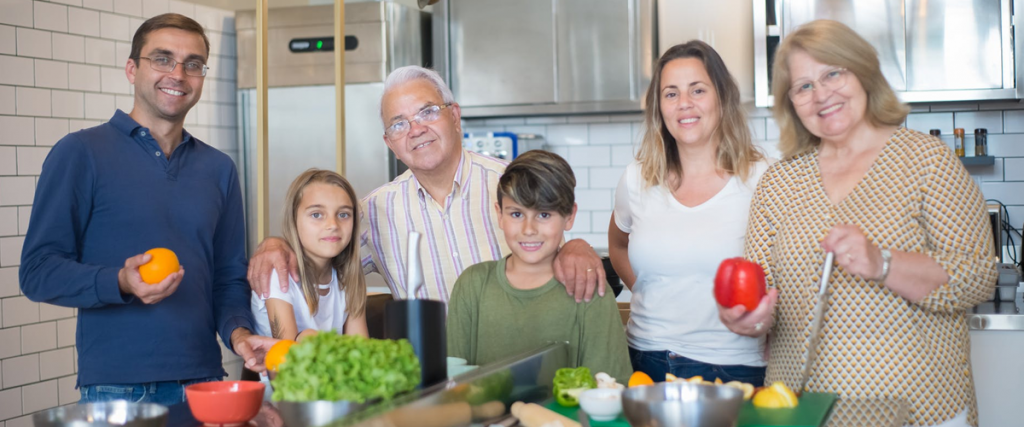
November is National Diabetes Month!
Prediabetes is a serious health condition that puts you at an increased risk for developing type 2 diabetes. Prediabetes affects more than 1 in 3 U.S. adults—that’s 88 million people—but most people don’t know they have it.
The good news is that by making healthy lifestyle changes, it is possible to manage or reverse prediabetes and prevent it from turning into type 2 diabetes.
COULD YOU HAVE PREDIABETES?
Follow these tips to prevent/manage prediabetes:
01. Take small steps
Making changes to your lifestyle
and daily habits can be hard, but
you don’t have to change everything
at once. Start small.
02. Move more
Limit time spent sitting and try to
get at least 30 minutes of physical
activity 5 days a week. Start slowly by
breaking it up throughout the day.
03. Choose healthier foods and drinks more often
Pick foods that are high in fiber and low
in fat and sugar. Build a plate that
includes a balance of vegetables,
protein, and carbohydrates. Drink
water instead of sweetened drinks.
04. Lose weight, track it, keep it off
You may be able to prevent or delay
diabetes by losing 5 to 7 percent of
your starting weight.
05. Seek support from your doctor
People are more successful at
managing their prediabetes if they
have regular contact and support
from trusted health care professionals.
06. Stay up to date on vaccinations
The COVID-19 and flu vaccines are
important for people who may be more
likely to get very sick from COVID-19
or the flu, such as people with diabetes.
Resilience

Resilience is the ability to adapt and bounce back from stress, change, and challenge. Like a muscle, the more you exercise your resilience, the stronger it becomes. Being resilient doesn’t protect you from experiencing negative emotions, but it does help you embrace the opportunity to learn about yourself and prepare you for future challenges.
4 Ways to Revive Your Resilience

Get back to basics to boost your resilience.
Practicing positive lifestyle habits like good nutrition, sleep, hydration, and regular exercise can strengthen your body to adapt to stress and reduce the emotional impact.

Try to focus on what really matters to keep frustrations in perspective.
Focusing on the bigger picture can help you avoid blowing day-to-day annoyances like traffic and dirty laundry out of proportion.

Improve your mental health by leaning into positive social connections.
Work to keep relationships with friends, family, and co-workers strong so that you can be there for one another when times get tough.

Counteract the physical and mental side effects of stress by doing something that makes you feel good!
Laugh with a friend, move your body, or get to bed earlier. Doing just one thing that makes your body and mind feel a little better can help minimize the impact of stress.
Talk it Out
Talk to a mental health professional if you feel like you are unable to cope. The Employee Assistance Program [E.A.P.] provides confidential, short-term counseling services for benefit eligible employees and their dependents. You can call anytime to discuss marital, relationship or family problems; stress, anxiety and depression; grief and loss, job pressures and substance abuse.
Family Advocacy in Long-Term Care

The decision to move into a long-term care or assisted living facility is one that requires thought and preparation. Taking steps to choose the facility most likely to meet your loved one’s needs, is necessary work for a positive long-term care experience.
Necessary work includes acts of advocacy done in preparation for long term care placement, and while your loved one is residing in long-term care.
The three stages of long-term care family advocacy are…
Stage 1: Advocate by assisting loved ones, as they wish, to take the steps to choose a facility that meets their needs and preferences.

- Assist your loved one as needed to call and request facility information to better narrow down the options.
- Together as appropriate, review basic amenities, cost, staffing ratio, dining, resident rooms, does facility accept Medicaid if needed in the future or long-term care insurance? Can you stay at the facility should you transition to Medicaid, and would you have to share a room once on Medicaid? Does the facility allow visitation, or compassionate caregivers.
- Encourage your loved one to choose 2-3 facilities to visit. Assist to set appointments and walk through the facility, schedule to eat a meal, visit with the staff and meet the administrator. The administrator sets the atmosphere for the facility. Listen to the volume level of the facility, does the facility have strong unpleasant odors? Is the facility clean and orderly and are the staff friendly and welcoming or rushed and inpatient?
- Discuss with your loved one what they liked and did not like in each facility. If one of the facilities appears to meet their needs and preferences and they are willing to accept your assistance, then assist them to choose a facility.
Stage 2: Advocate for and create a positive move-in experience.

- Plan ahead to create a more orderly experience.
- Visit the new room prior to move-in day.
- Make the room homelike and comfortable for your loved one. Having some personal belongings, they would like around them can make the transition a more pleasant experience.
- Introductions to staff assisting with the move-in and to those who will be working with your loved one is important.
- Assist to inventory all items being brought into the facility to include hearing aids, dentures, jewelry, clothing—everything.
- Offer to assist your loved one to get settled or if they are tired, set a time to come and assist to organize their things at a later time.
- Request a locked drawer if your loved one has items they would feel better having locked up.
- Learn when Resident Council and Family Council Meetings are and where they are held.
Stage 3: Be actively involved with your loved one during their stay in the facility of their choice. Residents whose family are involved receive better care.

- Know your loved one’s rights and educate them so they will be able to voice expectations for care with informed confidence.
- If the facility is not allowing visitation due to an outbreak of infection request to visit with your loved one via, zoom, even if it is just to lay eyes on them and let them know you care.
- Participate in Family Council and if one is not formed in the facility speak with your loved one and with their support create a council in their facility. Ombudsmen are willing to assist in the development of councils.
- Know who your advocates are and how to contact them- Ombudsmen are formally trained advocates that can help when family efforts aren’t enough.
Visit the Idaho Commission on Aging website for additional information and services to help older Idahoan’s age with safety and dignity.
Idaho Family Dinner Night 2021

Celebrate Idaho Family Dinner Night on September 27!
Eating together regularly as a family is one of the best ways to build and maintain strong relationships with your children. Frequent family dinners are linked to positive benefits for youth, including lower rates of substance use, decreased stress, higher self-esteem, and better academic performance in school.
That’s why the Office of Drug Policy (ODP) is kicking off an Idaho Family Dinner Night campaign to encourage parents across the state to celebrate Idaho Family Dinner Night on the fourth Monday of September which falls on the 27th this year. Let’s make family meals a regular event in your homes all year round.
Idaho Family Dinner Recipe Guide
To help families celebrate and connect around the dinner table, ODP created the Idaho Family Dinner Recipe Guide, which is filled with conversation starters, games and activities, and simple, budget-friendly recipes, including:
- Slow Cooker Chicken Santa Fe Soup
- Quick Trick Chicken Tacos
- 5 Minute Easy Egg Fried Rice
- Build Your Own Baked Nachos
- Baked Chicken Parmesan
To develop the Recipe Guide and share resources with parents, ODP has partnered with The Family Dinner Project, a national nonprofit initiative that champions family dinner as an opportunity for family members to connect with each other through food, fun, and conversation about things that matter. ODP is encouraging Idaho parents to sign up for The Family Dinner Project’s free online program – Food, Fun, and Conversation: 4 Weeks to Better Family Dinners – for tools and resources to help make family dinners a household staple in just four weeks.
For more information about Idaho Family Dinner Night, download the Recipe Guide, and learn how to become a family dinner pro in three easy steps, visit https://odp.idaho.gov/family-dinner-night/
 Official Government Website
Official Government Website
